
Therapist Breaks Down How Birth Order Among Siblings May Have Quite An Impact On Their Personalities And A Lot Of People Think It’s Spot-On
Psychology is such a fascinating science, because you can learn so many new things about yourself: the reasons behind your behavior, your reactions to certain things, or why you prefer some things over others. For example, did you know that the order in which you were born may impact your personality?
TikTok user @risethriverepeat created a TikTok series that went viral describing what personality traits are common for someone who is the youngest, oldest, middle child, and others. A lot of people in the comments were saying that those descriptions were very accurate, so maybe you too can relate.
More info: TikTok
TikTok user explains Adler’s birth order theory, which suggests that children can develop different personalities based on which order they were born in
Image credits: risethriverepeat
TikTok user @risethriverepeat’s real name is Tristan Collazo and he is a licensed resident in counselling. On TikTok, he talks about mental health, various disorders, traumas, and other things that are related to psychology.
One of his series really blew up: the first part got 7.8 million views and more than 800k likes. In this series, Tristan talks about Adler’s concept of birth order. The theory was developed by Alfred Adler, an Austrian psychiatrist in the first half of the 20th century. He claimed that birth order affects a child‘s personality and Tristan is explaining what Adler‘s observations were.
Oldest children tend to be the responsible ones, the perfectionists, and the helpers
Image credits: risethriverepeat
Tristan starts this series by explaining what is common to the oldest children in families. Parents have high expectations from their firstborns, but once they have a sibling, they have to adapt to not being the only child anymore. This conditions the oldest children to be perfectionists, people pleasers, authoritative but very helpful and responsible.
To some, this concept might seem outdated, and a curious commentator asked if Adlerian therapy was still practiced. Tristan answered that therapists still use the concepts because it’s still valuable information, just every family and every person is different, so they can’t be applied perfectly.
In another video, he touches on if this theory should be discarded, as there are so many things that go into one’s personality, such as socioeconomic status, gender roles, and social influences, but the therapist firmly believes that it shouldn’t be discarded as it explains some of the tendencies.
The second child has a competitive nature and is always improving their skills
Image credits: risethriverepeat
In the second part, Tristan discussed the second child. They learn how to share quickly and from the start, they have divided parent attention. The older sibling is someone they look up to, although there is also competition and the second child wants to be as good or better than them, which is why they can be better adjusted in life. Like the oldest child, they are people pleasers, but rebellious. They may have a competitive spirit, always learning something new, improving themselves.
Image credits: risethriverepeat
Image credits: risethriverepeat
Middle children can have very varying personalities: from frustrated to cooperative
Image credits: risethriverepeat
As mentioned, the first video in the series got 7.8 million views and the second got nearly 3 million views, so Tristan continued by explaining what personality traits middle children tend to have. The middle child can become resentful or frustrated because they are no longer the youngest. The therapist explains that it’s not easy for a middle child to please parents as much when there is a younger and an older sibling. Also, it’s different if it’s a smaller or a bigger family. Middle children in small families tend to be more frustrated, but in bigger families, they can be more cooperative.
The traits of a middle child aren’t so one-sided: they can feel that the world is unfair, feel like they’re not getting enough love and be impatient; on the other hand, middle children can be even-tempered, adaptable, and able to compromise.
Image credits: risethriverepeat
The youngest children are the babies of the family, but can be competitive
Image credits: risethriverepeat
In his next video in the series, the therapist continues with the personality traits the youngest child in the family tends to have. The youngest child doesn’t have to compete with a younger sibling, which would require a lot of attention from the parents, especially in the first years. They are the ones receiving more attention from the parents as the older children are more independent, so the youngest is always treated like the baby of the family.
They are more likely to be outgoing and attention seeking, but they can feel inferior to their older siblings and feel the need to be competitive. They may behave as the only child and be very dependent on other people.
Image credits: risethriverepeat
Image credits: risethriverepeat
One of the twins can become a leader and the other may have identity issues
Image credits: risethriverepeat
Having a twin must have some sort of an influence on one’s personality, right? Tristan explains that often there is a ‘stronger’ and ‘weaker’ twin. Parents may identify one of the twins as the older one, despite there being nearly no age difference at all. So the younger one may feel the need to compete with the other twin. Also, if one becomes the leader, the other may deal with identity issues.
The only child may have trouble sharing, but appear more mature because they spend more time with adults
Image credits: risethriverepeat
People were really waiting for this one, requesting it in almost every previous video’s comments—the only child. The only child doesn’t have to compete for parents’ attention. They may be hyper-dependent if the parents are overprotective. Because they are the only ones getting everything from their parents, they can have trouble sharing and be more upset when things don’t go their way. But they can appear more mature, because in the family, they interact mostly with their parents and not other children. They can develop a sense of self-entitlement and have more confidence.
The only girl among brothers can become either overly feminine or a tomboy
Image credits: risethriverepeat
People in the comments were pointing out that some of the concepts, for example, middle child, don’t apply to them because they are the only girl or the only boy among children in their family. So in the next video, the therapist goes on to explain that the only sister among brothers may have been overprotected by her brothers. They may have not let her date, because no one seemed good enough. These circumstances can lead to the girl becoming overly feminine or a tomboy.
The only boy among sisters can become the head of the family or embrace their feminine side more
Image credits: risethriverepeat
The opposite circumstances, a brother surrounded by sisters, can lead to two outcomes as well: the boy can become the head of the home or embrace their feminine side more.
It’s more the situation that a person is born into than the order of birth
@risethriverepeatPsychological birth order ##alfredadler##birthorder##psychology##fyp##mentalheath##therapy##therapist##counseling ♬ empty crown – YAS
Video credits: risethriverepeat
Looking at these descriptions, you can see that it is not just the order in which a person is born that affects them, but the general circumstances. This is what Tristan Collazo says: “This concept states that it’s not merely the order in which you were born, but the situation in which you were born and the way in which you interpret it. There is a lot that is similar for children born in the same home; however, the psychological situation of each child is unique and differs from the others. In other words, no two children are born into the same family. Individuals can identify with more than one birth order category, as all first-born children have been only children, along with middle children having once been the youngest child.”
Many people were saying that they can relate to the descriptions
Have you ever heard of this distinction and different personality traits according to someone’s birth order? Do you find that these descriptions apply to you? Let us know in the comments!
187Kviews
Share on FacebookFar too generalist. Try having a toxic narcissist as an older sibling.
Sympathy... I have a toxic narcissist as a younger sibling. They're not easy to cope with, are they?
Load More Replies...This has no scientific backing, and it is mostly random talk. Truism in a form that is also employed by astrologers. Which person, who is a first child, would not tend to agree that he or she is a "people pleaser"? And if that not, maybe "authoritative"? Do not trust people on TikTok who make wild claims even if they sound true, if they fail to provide an educated bibliography to back up what they say.
It depends what you mean by scientific backing. These ideas are very well-known. They date back fron the early XXth century. Have a look at Alfred Adler, eg. on Wikipedia.
Load More Replies...Only child here. Everyone is always so jealous, but it gets lonely sometimes. :(
Very true, all my friends would say how lucky I was being an only child, more attention from parents and more birthday/Christmas presents, but none of them realize how lonely it is. I was a surprise baby my mum had at 41 so there was no chance of any siblings. There's a lot of pressure on being the only child, your the one that has to carry on the family line.
Load More Replies...Far too generalist. Try having a toxic narcissist as an older sibling.
Sympathy... I have a toxic narcissist as a younger sibling. They're not easy to cope with, are they?
Load More Replies...This has no scientific backing, and it is mostly random talk. Truism in a form that is also employed by astrologers. Which person, who is a first child, would not tend to agree that he or she is a "people pleaser"? And if that not, maybe "authoritative"? Do not trust people on TikTok who make wild claims even if they sound true, if they fail to provide an educated bibliography to back up what they say.
It depends what you mean by scientific backing. These ideas are very well-known. They date back fron the early XXth century. Have a look at Alfred Adler, eg. on Wikipedia.
Load More Replies...Only child here. Everyone is always so jealous, but it gets lonely sometimes. :(
Very true, all my friends would say how lucky I was being an only child, more attention from parents and more birthday/Christmas presents, but none of them realize how lonely it is. I was a surprise baby my mum had at 41 so there was no chance of any siblings. There's a lot of pressure on being the only child, your the one that has to carry on the family line.
Load More Replies...
 Dark Mode
Dark Mode 

 No fees, cancel anytime
No fees, cancel anytime 






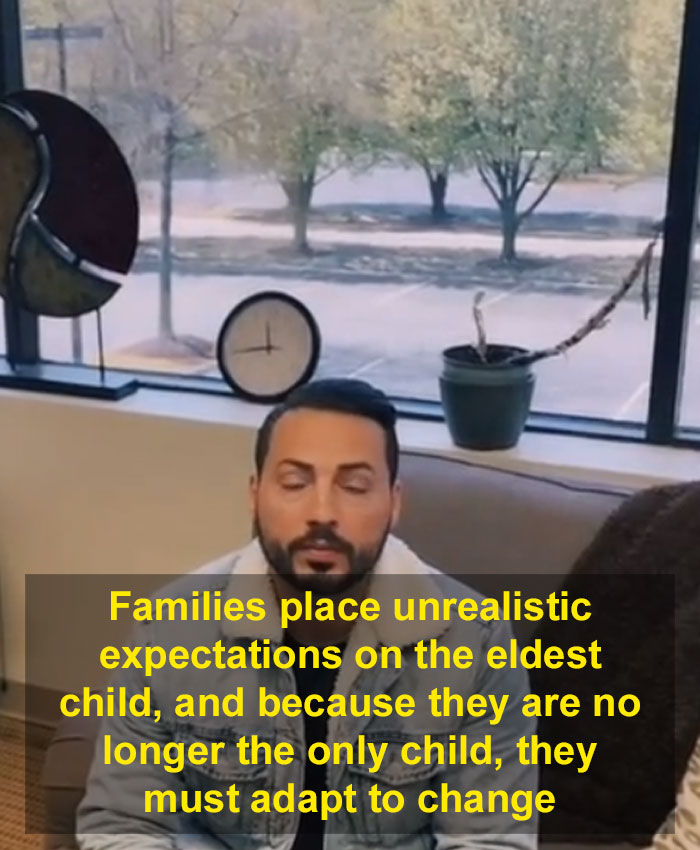

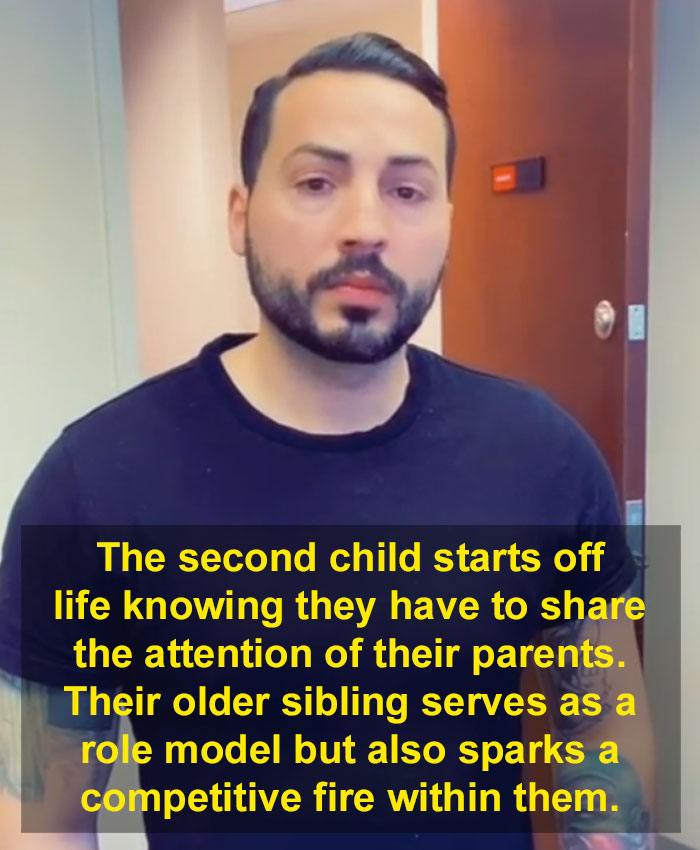


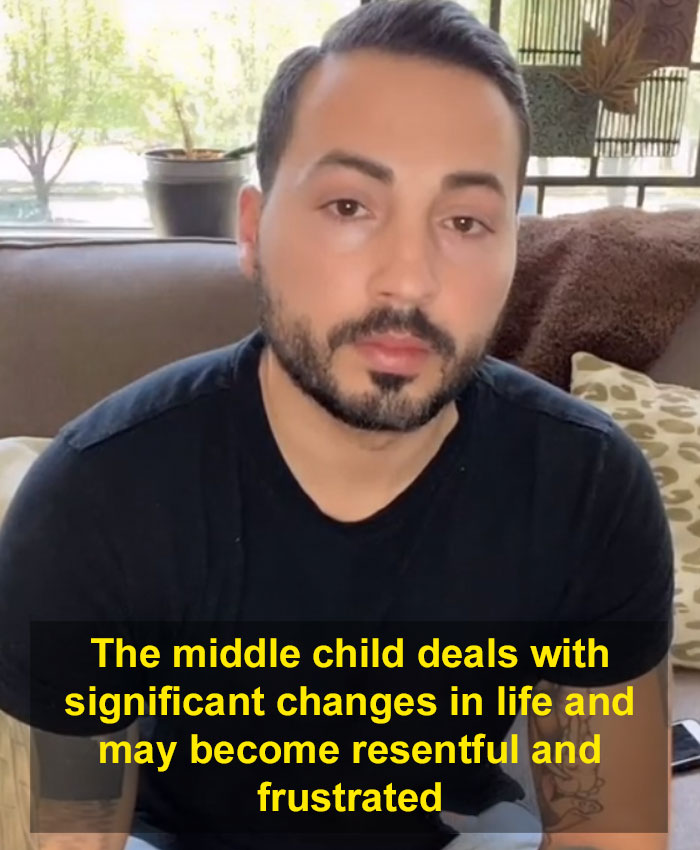
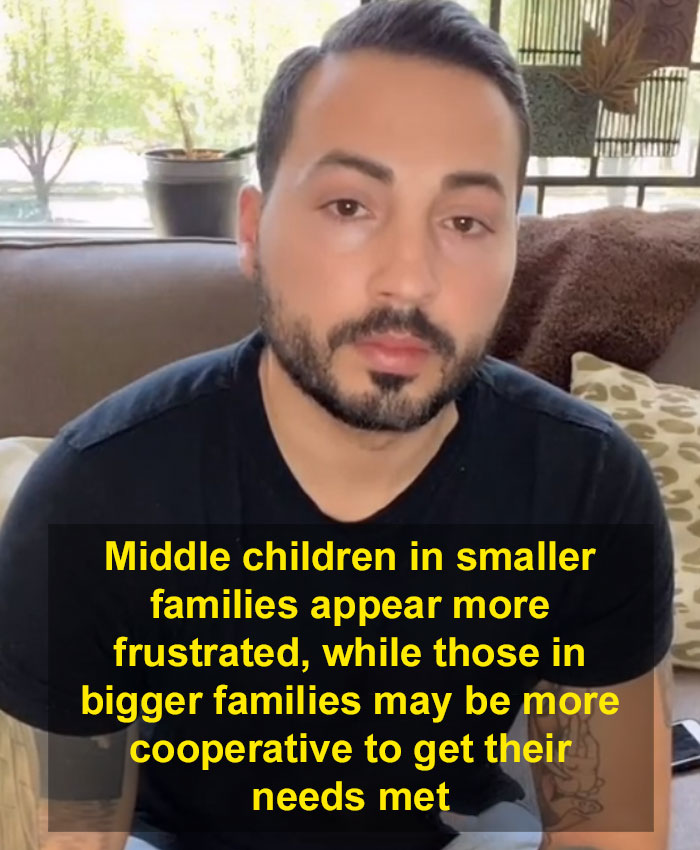
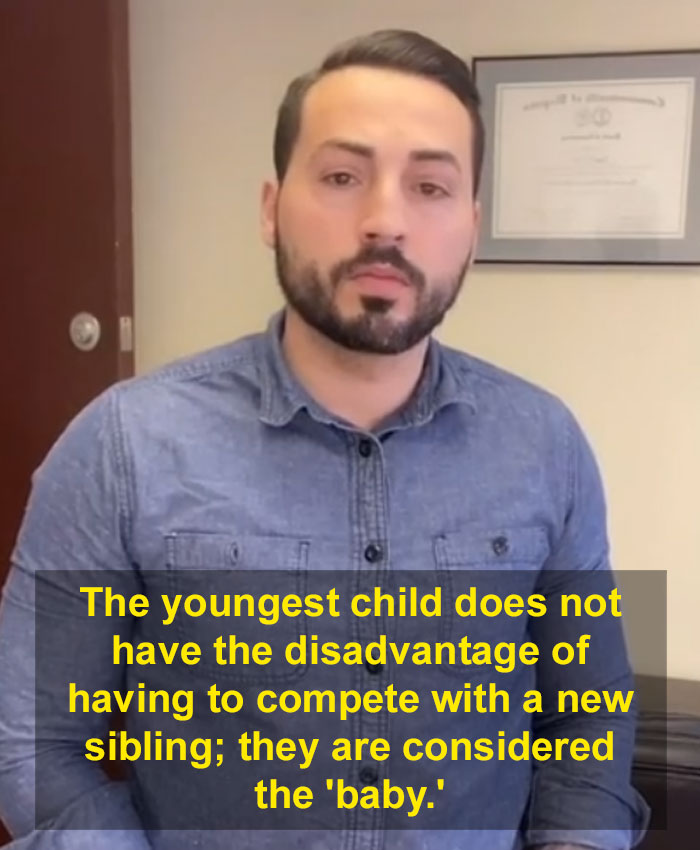
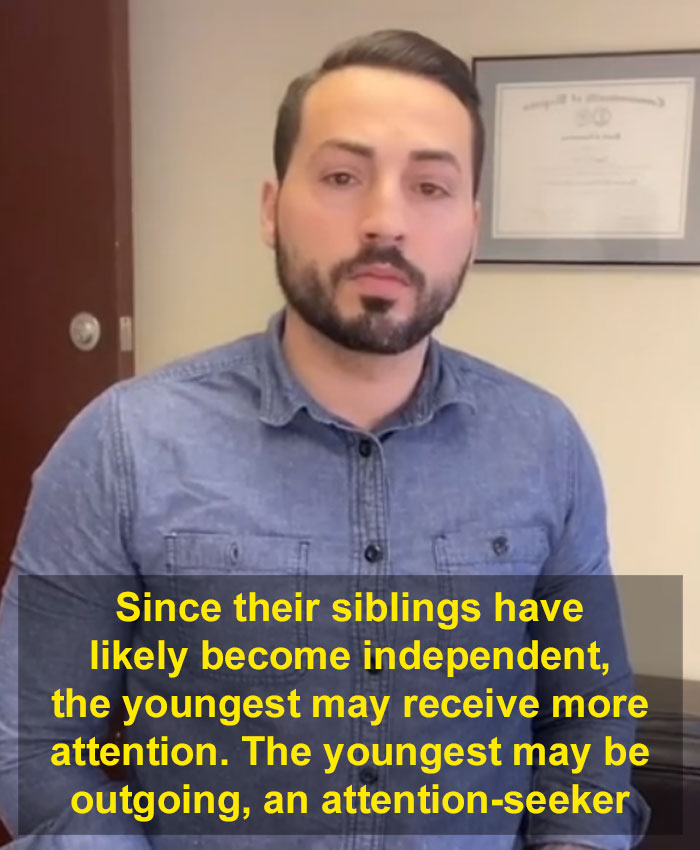
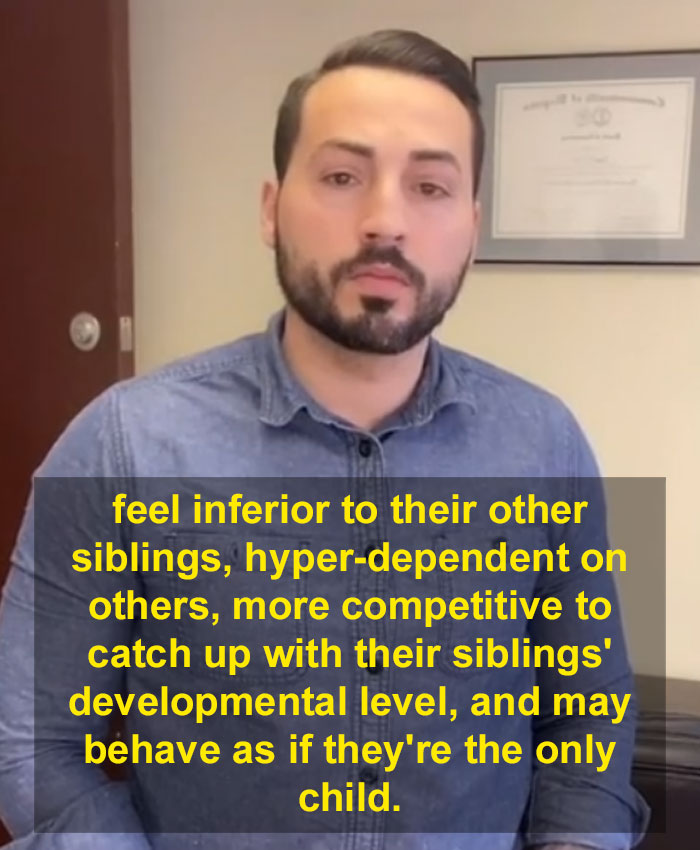
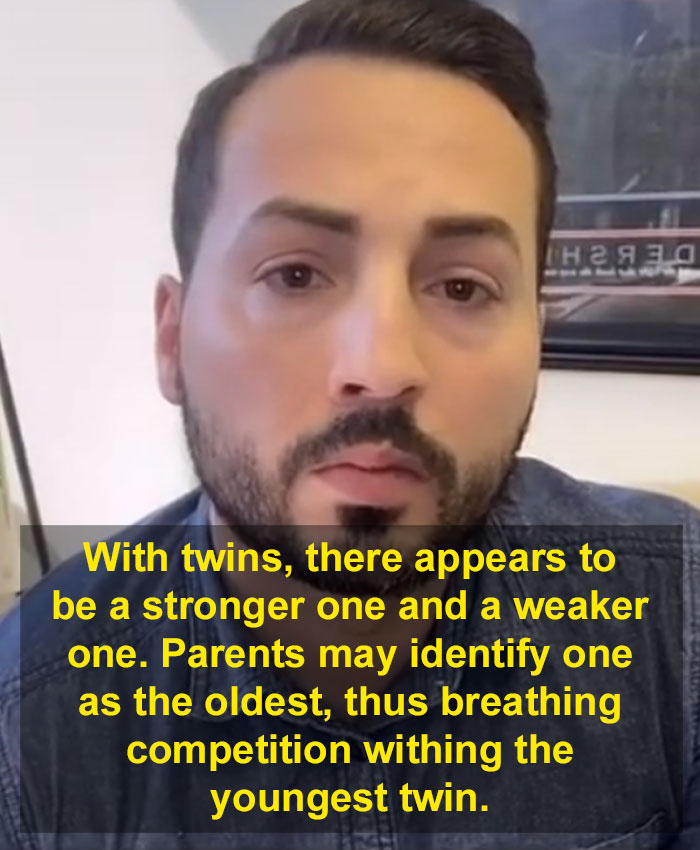


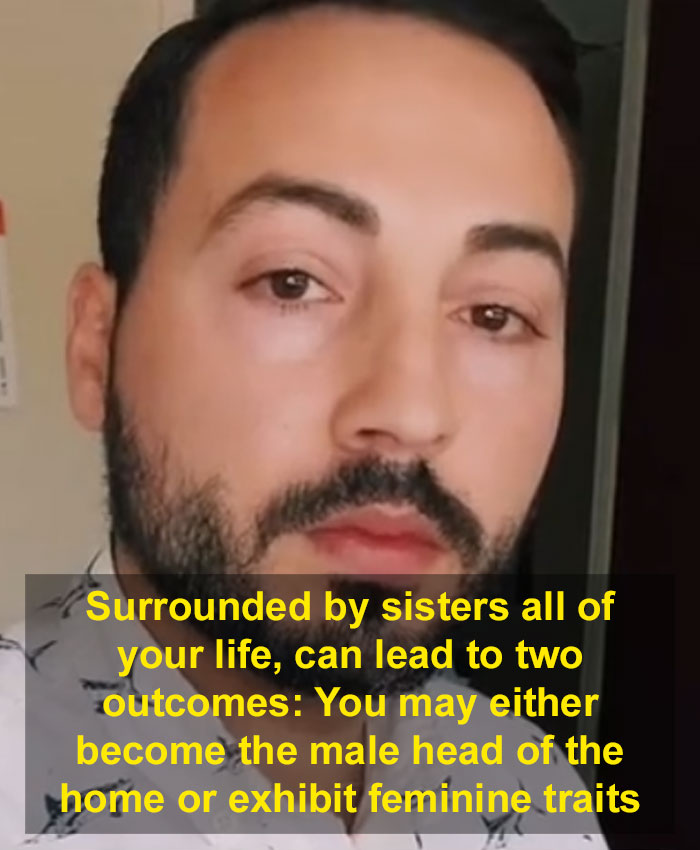






















































83
121